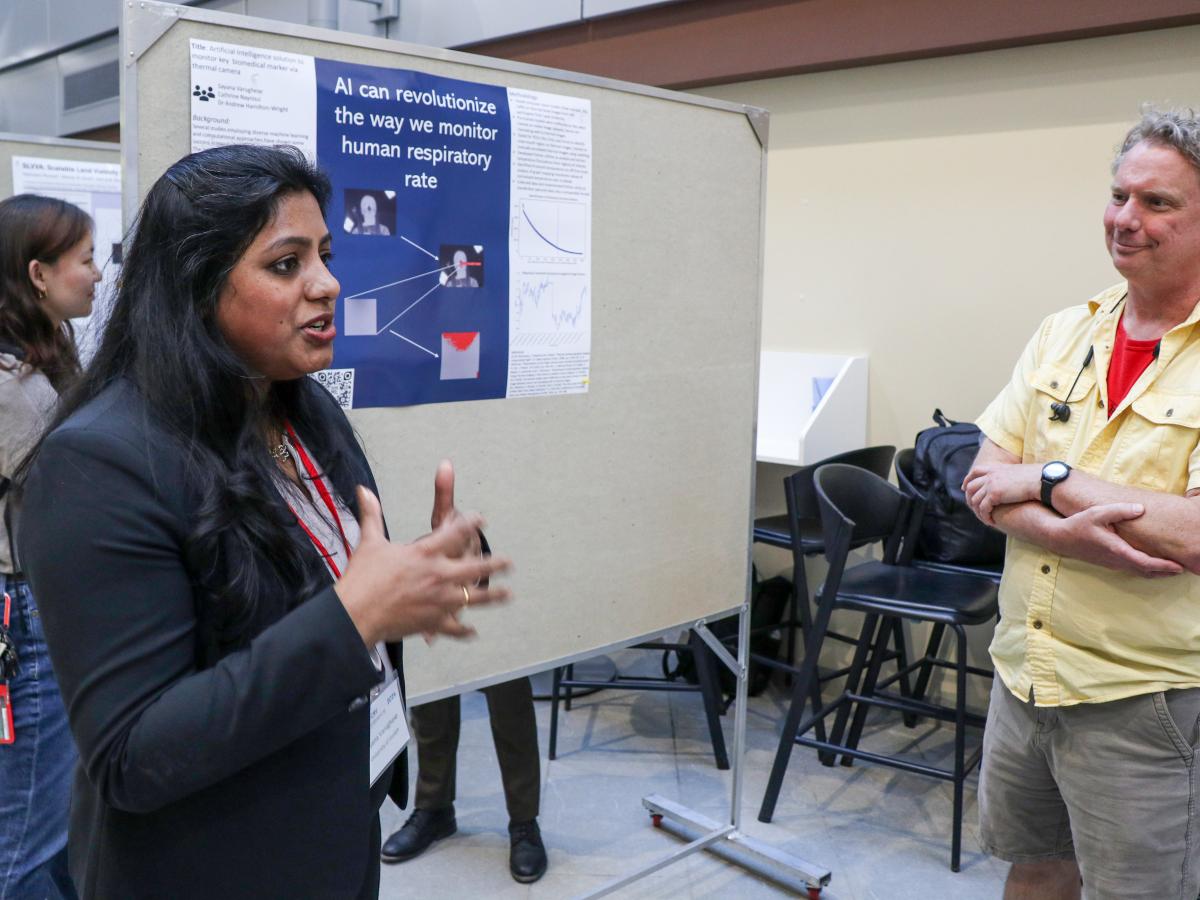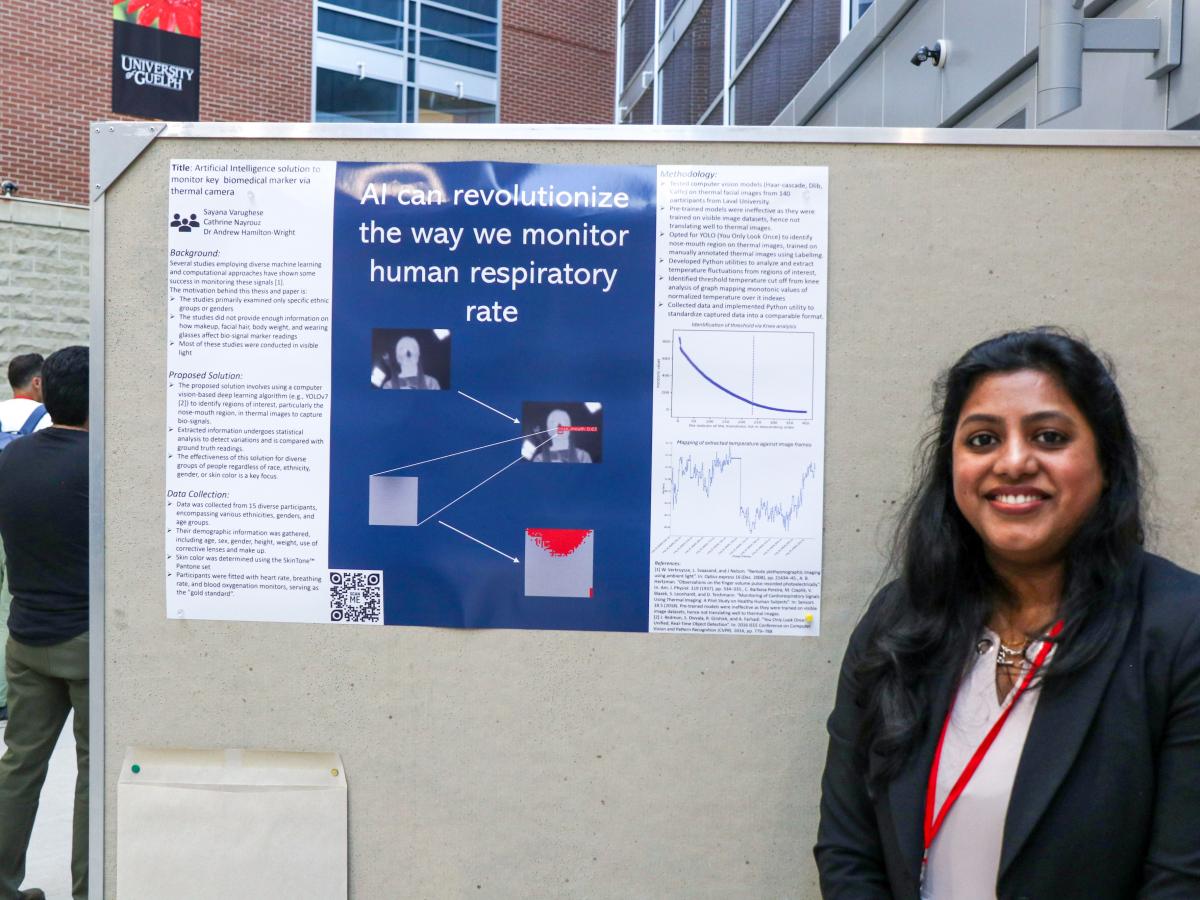Unveiling Tomorrow's Tech: Canadian AI and CRV Conferences
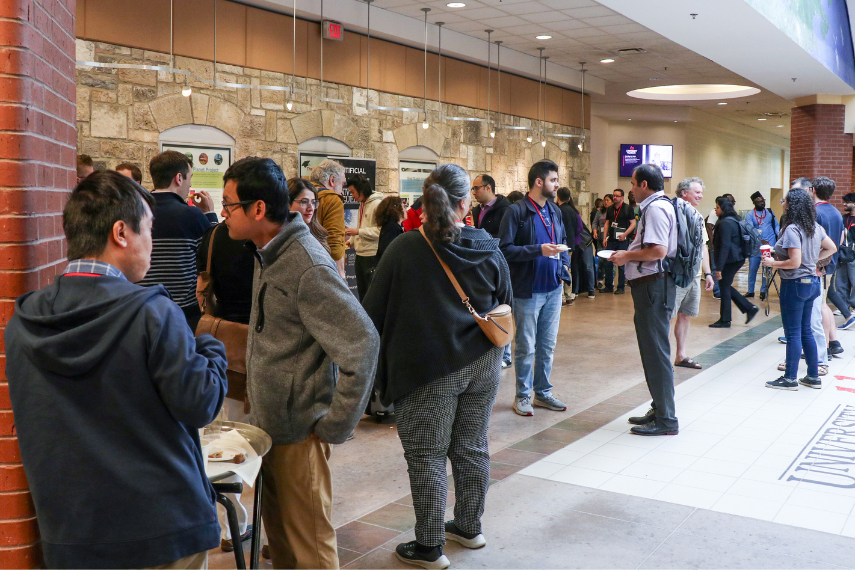
From May 28 to 31, 2024, the University of Guelph (U of G) hosted the 37th Canadian Conference on Artificial Intelligence (Canadian AI) and the 21st Conference on Robots and Vision. The event brings together researchers and practitioners from across the country to engage in panels and sessions aimed at exploring various aspects of the use of AI in education, government, NGOs and other applications.
Canadian AI featured keynote speakers who delved into various facets of AI. On Tuesday, keynote speaker Dr. J. Ross Mitchell from the University of Alberta presented the projects being developed to translate AI technology into clinical practice, particularly in the area of constructing large population-level datasets for inclusive AI and precision health research.
On Wednesday, Dr. Ebrahim Bagheri from Toronto Metropolitan University explored the responsible use of AI, and engaged participants in a case-study discussion of why people choose to trust human doctors instead of AI even if it could guarantee more accuracy with certain healthcare.
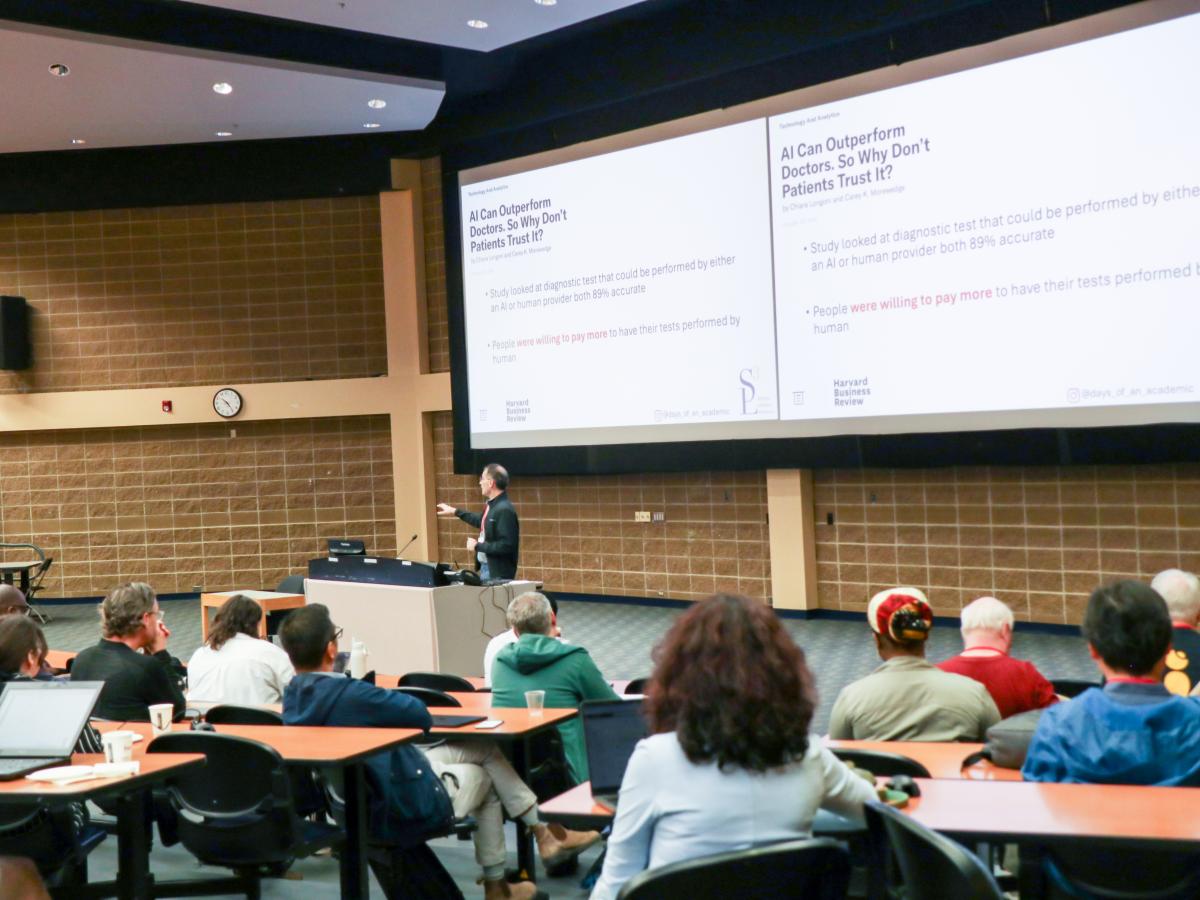
On Thursday, Dr. Kate Larson from the University of Waterloo presented the morning keynote on Cooperative AI, and the importance of prioritizing cooperation to find ways to improve joint welfare. Participants engaged in discussions surrounding the use of formal and informal institutions to ensure cooperation, and the relevance of making it an objective in AI systems.
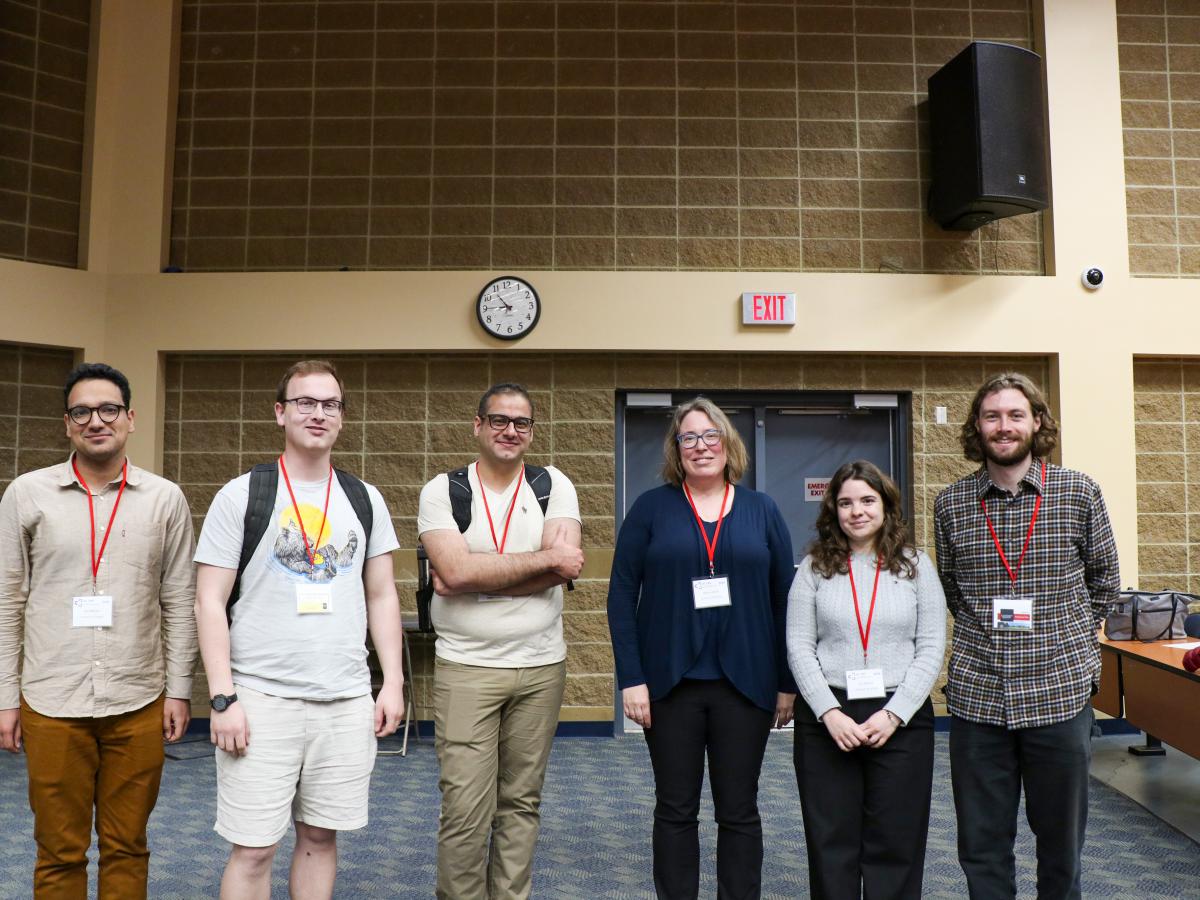
“Our aim with the conferences is to bring together leading researchers, decision-makers and students from across Canada to look at innovations and leadership in AI, as well as where we’re headed,” says Dr. Graham Taylor, engineering professor and AI/CRV co-chair along with Dr. Luiza Antonie, computer science associate professor. Taylor is also academic co-director for the Centre for Advancing Responsible and Ethical AI. “As part of the conference, U of G also hosted the third annual Responsible AI event to ensure the importance of the urgent need for responsible and ethical AI in society.”
“My favourite part about these conferences is the friendly and supportive atmosphere. Our goal at CAIAC (the host society for these conferences) is to welcome all graduate students and to give them a safe and encouraging environment to showcase their research,” adds Antonie.
The 21st Conference on Robots and Vision showcased keynote speakers addressing advances in computer vision and robotics. Dr. Jitendra Malik, from the University of California, presented on reconstructing and recognizing human actions in video and leveraging 3D tracking for 4D analysis, enabling deeper insights into human-object interactions.
Dr. Kristin H. Petersen, from Cornell University, explored the intelligence and behavior of natural swarms, discussing how these principles can enhance robot collective performance, with examples from soft robot collectives and micro-scale constructions.
The conferences also included an Industry Track, where researchers, developers and entrepreneurs shared their experiences, alongside a poster session during which master’s and PhD students discussed their research with participants.
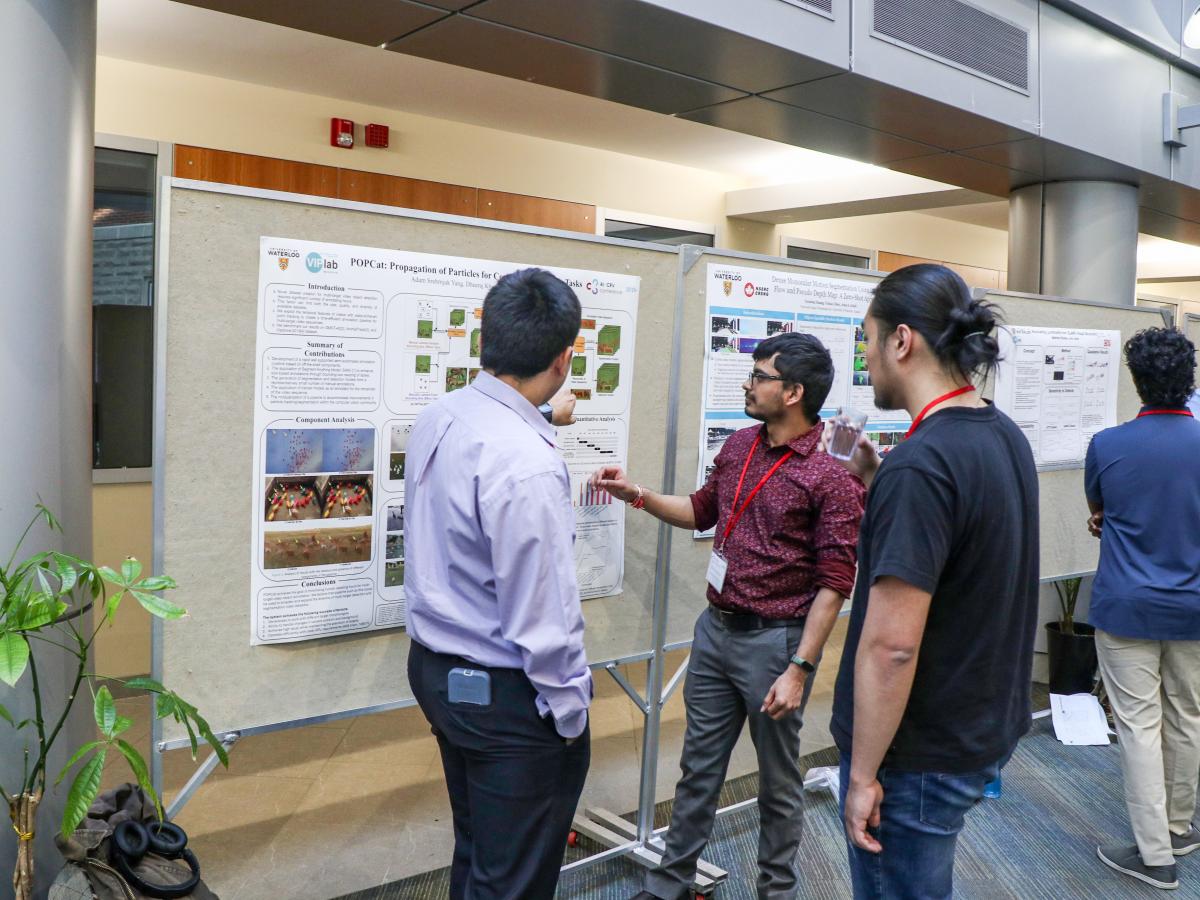
U of G Computer Science + AI master’s student Sayana Varughese presented her research project on how AI can revolutionize the way we monitor human respiratory rate.
“Two years back if you would ask me if I would be doing my continuation studies and presenting them at a conference, I would say no,” Varughese said. “I left academia years ago so coming back was scary, but my professor has been supportive and it’s amazing to have the opportunity to be here and share my passions. It’s a blessing to be here, to have this paper published for the conference.”
Her supervisor, Computer Science professor Dr. Andrew Hamilton Wright, said it was amazing to be present at the conference, especially with a project like Varughese’s, which focuses on the use of real-world data.
|
|
|
|---|---|
Other sessions included a hands-on tutorial that offers useful practical training on the alignment problem in AI, oral sessions on semantic segmentation and spatio-temporal fusion, a panel on the use of AI for social good in Canada, and a live AI ethics debate, along with opportunities to connect with other researchers and students in their fields.
